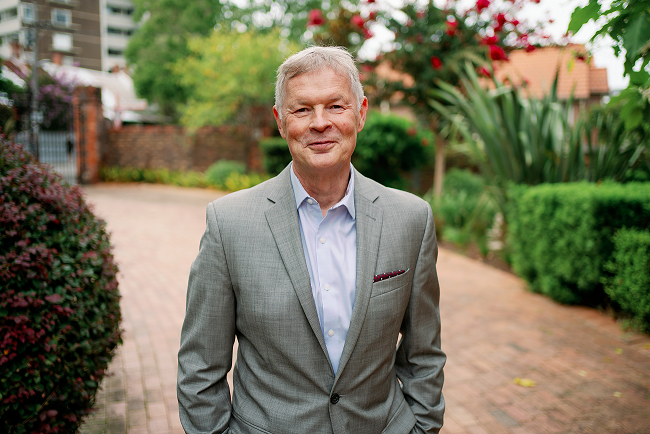
A groundbreaking new literacy clinic and reading centre will translate cutting-edge research findings into practice to support students who have difficulties with reading and spelling.
The Australian Catholic University’s (ACU) Australian Centre for the Advancement of Literacy (ACAL), launched in September 2023, is staffed by experts and clinicians who will help teachers by leveraging the latest evidence to provides hands-on help for those in need of more intensive literacy interventions.
In February, a report from the Grattan Institute revealed that one-third of young people in Australia cannot read proficiently, warning that this issue is costing the country $40bn over those students’ lifetimes.
The study says this “preventable tragedy” is the result of decades of disagreement about how to teach reading.
However, the ACAL aims to address this by conducting rigorous research and embedding it directly into initial teacher education courses, post-graduate certificates, and professional learning opportunities designed to upskill existing teachers.
A new dawn for literacy teaching?
Being the largest concentrations of reading researchers in the world, and Australia’s largest provider of teachers, the ACU believes this initiative may herald the new dawn in literacy teaching that Australian education needs.
“Strong literacy skills are essential for students to achieve good outcomes at school and in life, so we can’t leave it to chance,” ACU Executive Dean of Education and Arts Professor Mary Ryan told The Educator.
“When we have strong evidence, it should become part of every teacher’s practice. We want to make sure new graduates are armed with the latest research-informed practice through initial teacher education programs.”

Professor Ryan pointed to the importance of connecting the rest of the teaching workforce to high-quality professional development opportunities to ensure they have access to the knowledge and skills to make the best decisions for all students.
“In some cases, students have complex needs that require additional intervention outside school, and our clinic can provide this additional support.”
PD that makes a meaningful difference
Professor Ryan said the ACU’s literacy approach has been developed in recognition that teachers and leaders regularly deal with large workloads.
“All teachers undertake many hours of professional learning each year. We want to provide professional learning that will make a big difference to their practice and to student outcomes,” she said.
“We focus on developing teachers’ knowledge and understanding of why and how we use particular practices rather than just telling them what to do.”
Professor Ryan said this makes the ACU’s approach more sustainable, as teachers can apply their knowledge to support every student in each new class that they teach.
“If their students experience success, it means the teacher also experiences success. Great teaching is never an impost on workload – it is why teachers joined the profession.”
Clinic inaugural Director, Professor Saskia Kohnen said it would be untruthful to pretend changing literacy practices in schools isn’t an enormous effort.
“That said, we have seen some of the workload issues alleviated by entire schools or even sectors changing together,” Professor Kohnen told The Educator.
“Sharing professional learning and working collaboratively to source or create relevant materials can be hugely beneficial and effective.”

When it comes to intervention, time is of the essence
Centre Director Professor Rauno Parrila said when phonics instruction is done well, children become independent readers of books of their choice faster than using any other method.
“Skill generates motivation, not the other way around,” Professor Parrila told The Educator.
“Further, when systematic and explicit phonics instruction is paired with frequent progress monitoring, we can identify and help early the children who experience difficulties learning to read.”
Professor Parrila said the research shows that early interventions are more effective than if educators wait one or more years before intervening.
“When children are provided an effective early intervention, their motivation is affected less than if we wait longer before providing help,” he said.
“This often happens when systematic and explicit phonics instruction is not provided or when progress monitoring is done with materials that can mask rather than unmask poor reading, such as levelled predictable early readers.”

‘We adapt the programs to best suit a child’
Professor Kohnen said the clinic's interventions have been adapted based on newly emerging science and the specific needs of individual children.
“The staff working at the clinic and the materials we use are designed with agility in mind. We work with a multi-disciplinary team so that our clients can be cared for by the professional who knows most about their needs,” she said.
“In addition to their qualifications as teachers, speech pathologists, cognitive scientists and psychologists, many are dual-qualified and have additional specialist expertise. For example, some of our clinicians are trained to work with poor readers who are also anxious.”
Professor Kohnen noted that for the highest intensity level of intervention, rather than relying on scripted programs, the clinic’s staff adapt the programs to best suit a child.
“This is also what allows us to adapt quickly to new findings,” she said.
“More evidence is emerging about appropriate pacing of the introduction of new letter-sounds, which is actually quicker than traditionally thought, and the way we have designed our materials allows us to easily adjust the speed to match the new evidence.”


